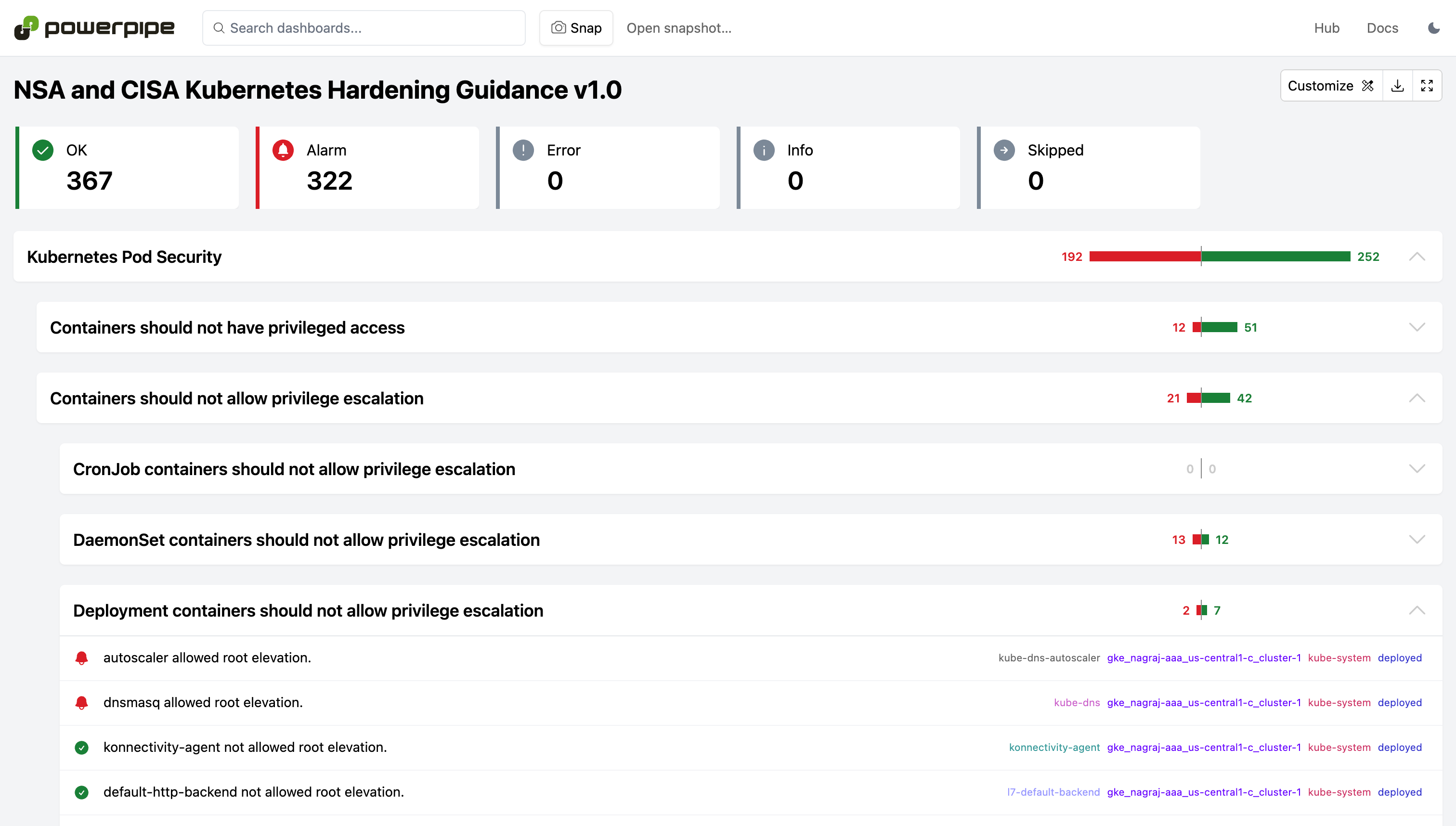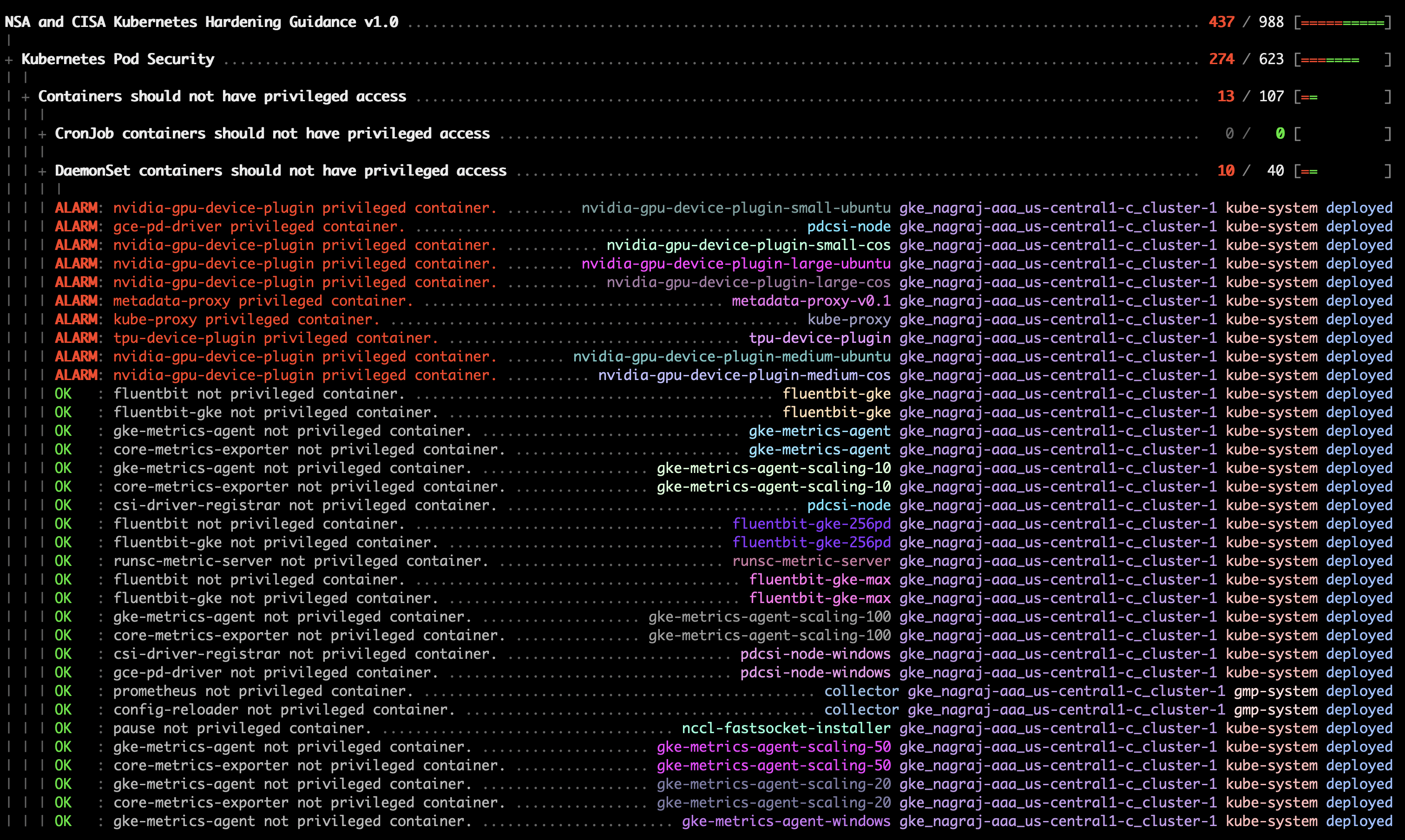Multiple checks covering industry defined security best practices for Kubernetes. The mod supports parsing and analyzing Kubernetes manifest files, allowing you to assess compliance directly on your configuration files before deployment. Includes support for CIS, National Security Agency (NSA) and Cybersecurity and Infrastructure Security Agency (CISA) Cybersecurity technical report for Kubernetes hardening.
Install Powerpipe (https://powerpipe.io/downloads), or use Brew:
brew install turbot/tap/powerpipeThis mod also requires Steampipe with the Kubernetes plugin as the data source. Install Steampipe (https://steampipe.io/downloads), or use Brew:
brew install turbot/tap/steampipe
steampipe plugin install kubernetesSteampipe will automatically use your default Kubernetes credentials. Optionally, you can setup multiple context connections or customize Kubernetes credentials.
Finally, install the mod:
mkdir dashboards
cd dashboards
powerpipe mod init
powerpipe mod install github.com/turbot/steampipe-mod-kubernetes-complianceStart Steampipe as the data source:
steampipe service startStart the dashboard server:
powerpipe serverBrowse and view your dashboards at http://localhost:9033.
Instead of running benchmarks in a dashboard, you can also run them within your
terminal with the powerpipe benchmark command:
List available benchmarks:
powerpipe benchmark listRun a benchmark:
powerpipe benchmark run kubernetes_compliance.benchmark.cis_v170Different output formats are also available, for more information please see Output Formats.
The benchmark queries use common properties (like connection_name, context_name, namespace, path and source_type) and tags that are defined in the form of a default list of strings in the variables.sp file. These properties can be overwritten in several ways:
It's easiest to setup your vars file, starting with the sample:
cp powerpipe.ppvars.example powerpipe.ppvars
vi powerpipe.ppvarsAlternatively you can pass variables on the command line:
powerpipe benchmark run kubernetes_compliance.benchmark.cis_v170 --var 'tag_dimensions=["Environment", "Owner"]'Or through environment variables:
export PP_VAR_common_dimensions='["connection_name", "context_name", "namespace", "path", "source_type"]'
export PP_VAR_tag_dimensions='["Environment", "Owner"]'
powerpipe benchmark run kubernetes_compliance.benchmark.cis_v170This repository is published under the Apache 2.0 license. Please see our code of conduct. We look forward to collaborating with you!
Steampipe and Powerpipe are products produced from this open source software, exclusively by Turbot HQ, Inc. They are distributed under our commercial terms. Others are allowed to make their own distribution of the software, but cannot use any of the Turbot trademarks, cloud services, etc. You can learn more in our Open Source FAQ.
Want to help but don't know where to start? Pick up one of the help wanted issues:

